1. 67% of Global Consumers Have Interacted with a Chatbot for Customer Support in the Past Year
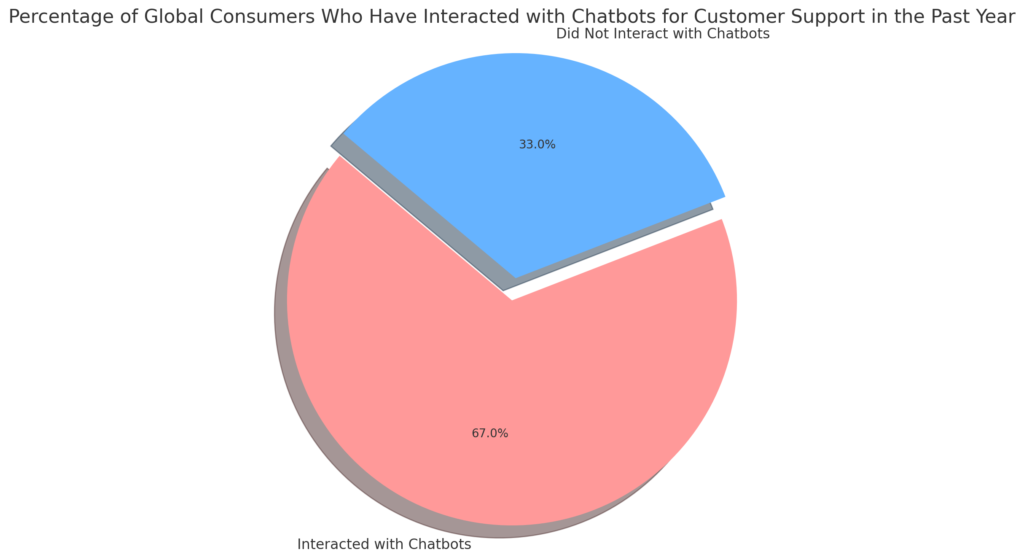
Chatbots are becoming increasingly popular, with an estimated 67% of global consumers having interacted with a chatbot for customer support in the past year. This rise in popularity is largely due to advancements in artificial intelligence (AI) and natural language processing (NLP) technologies, making chatbots more efficient and user-friendly.
2. The Chatbot Market is Expected to Reach $9.4 Billion by 2024
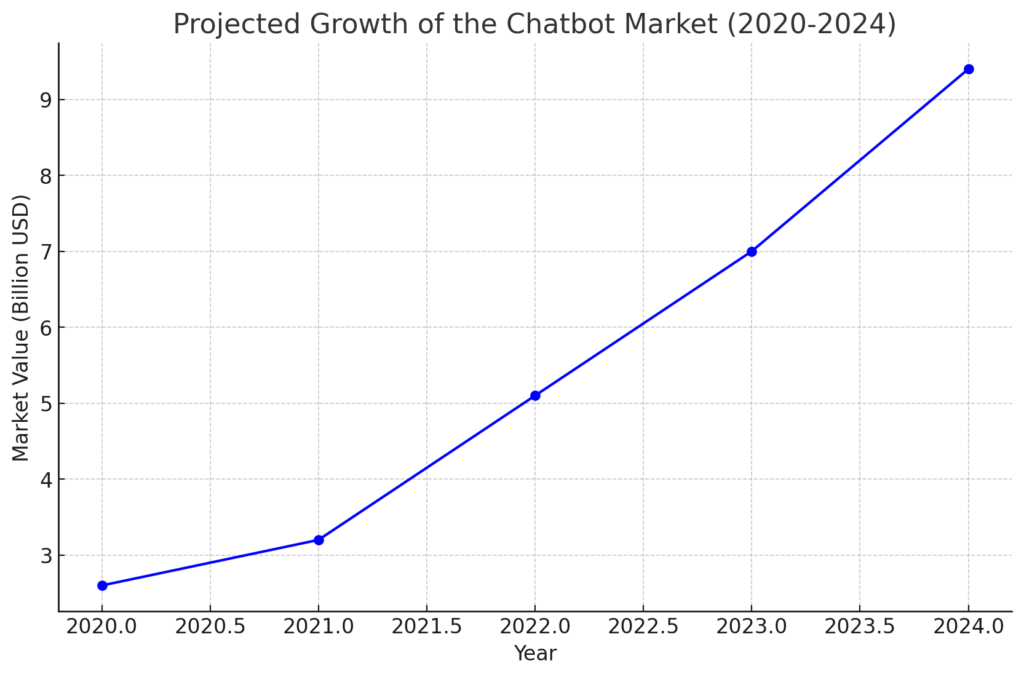
The chatbot market is expected to grow significantly, reaching a value of $9.4 billion by 2024. This growth is driven by the increasing demand for automated customer service solutions and the integration of chatbots in various industries.
3. Chatbots Can Help Businesses Save Up to 30% on Customer Service Costs
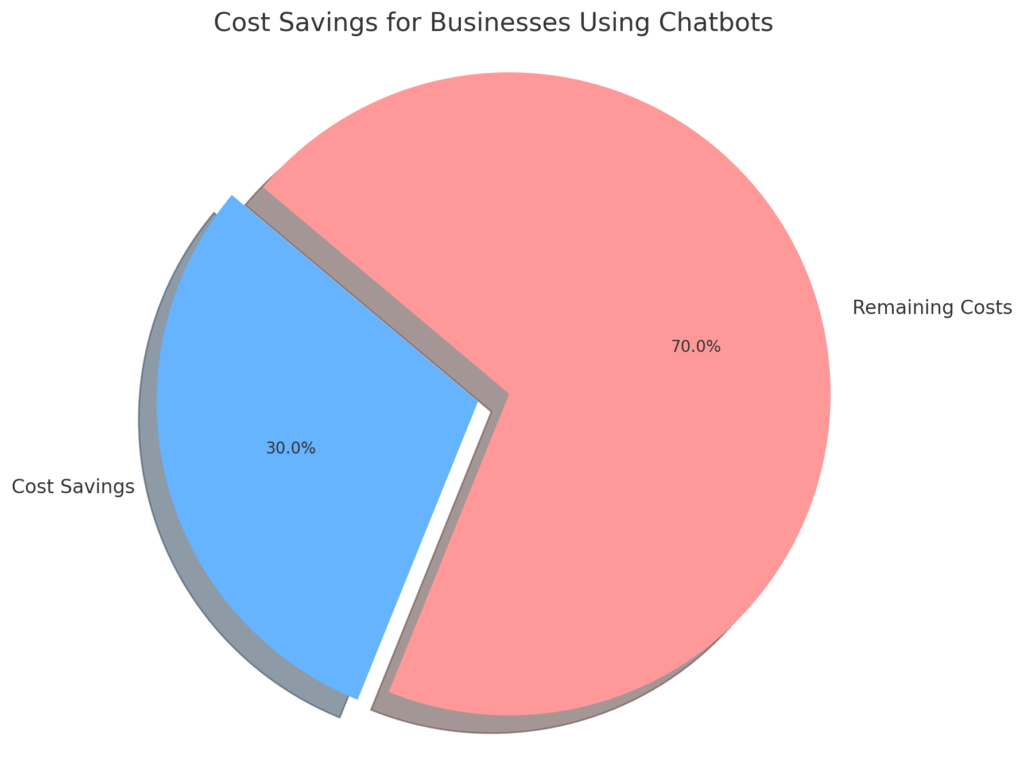
Chatbots can help businesses save up to 30% on customer service costs by automating responses to common inquiries. This efficiency allows human agents to focus on more complex issues, improving overall productivity.
4. 64% of Internet Users Believe 24-Hour Service is the Best Feature of Chatbots
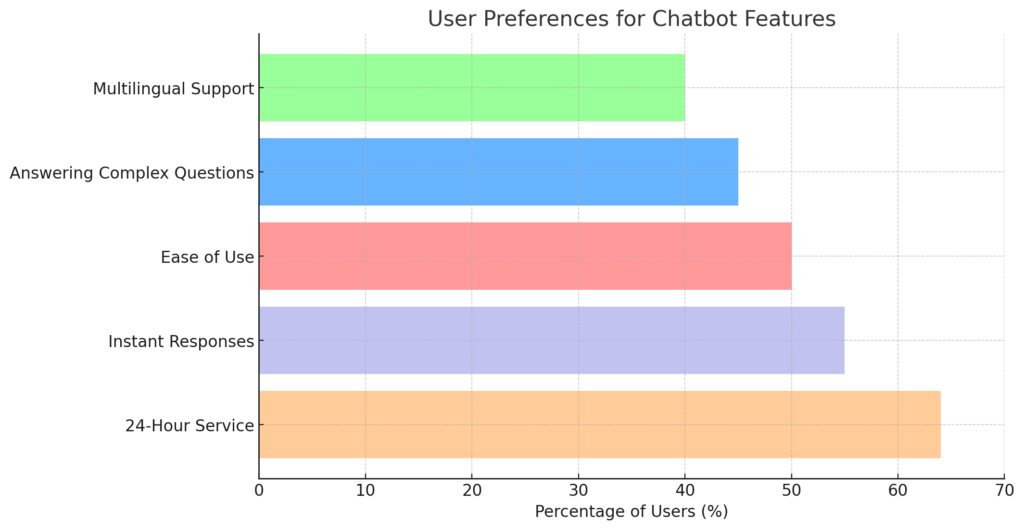
Chatbots can enhance customer engagement by providing instant responses to queries. Studies show that 64% of internet users believe 24-hour service is the best feature of chatbots, as it ensures their issues are addressed promptly, regardless of the time of day.
5. Personalized Chatbot Experiences Improve Customer Satisfaction and Drive Sales
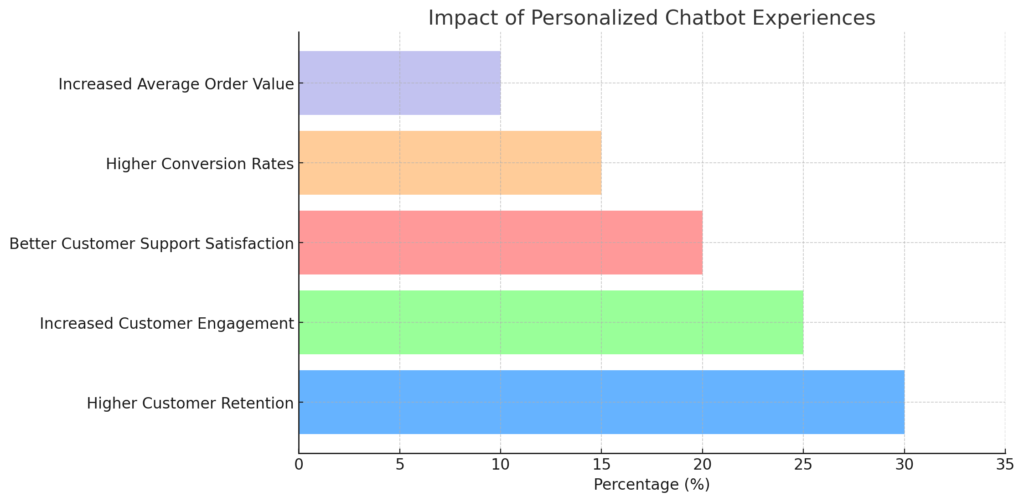
Modern chatbots are capable of delivering personalized experiences to users. By leveraging customer data and AI, chatbots can offer tailored recommendations, improving customer satisfaction and driving sales.
6. 34% of Online Shoppers are Comfortable Using Chatbots to Make Purchases
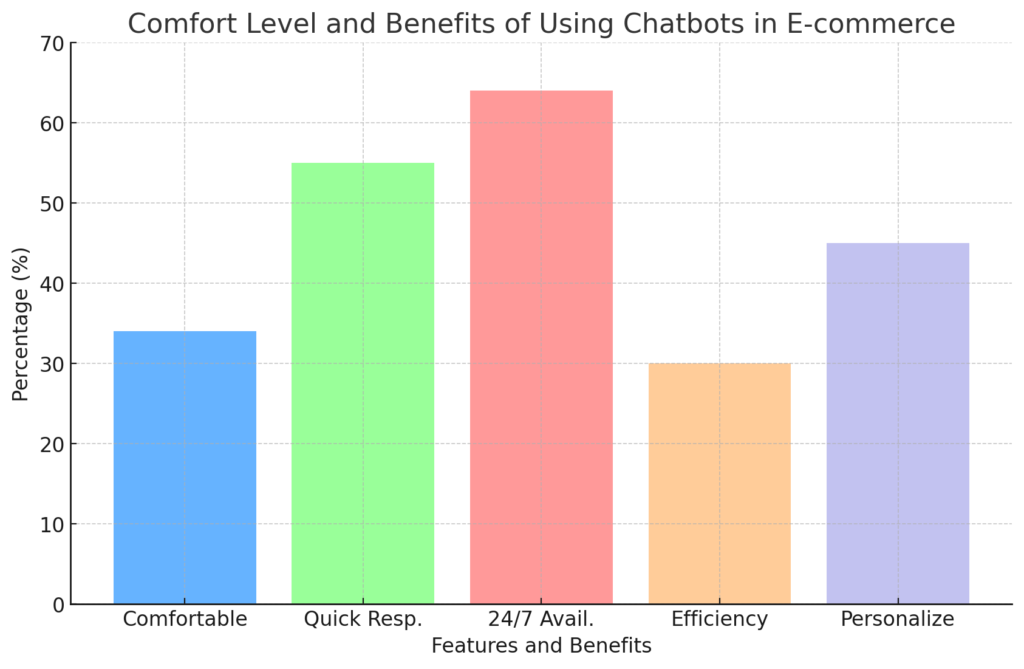
In the e-commerce sector, chatbots are used to assist with product recommendations, order tracking, and customer support. Approximately 34% of online shoppers are comfortable using chatbots to make purchases, highlighting their growing acceptance in the shopping experience.
7. Chatbots are Increasingly Being Integrated into Popular Messaging Apps
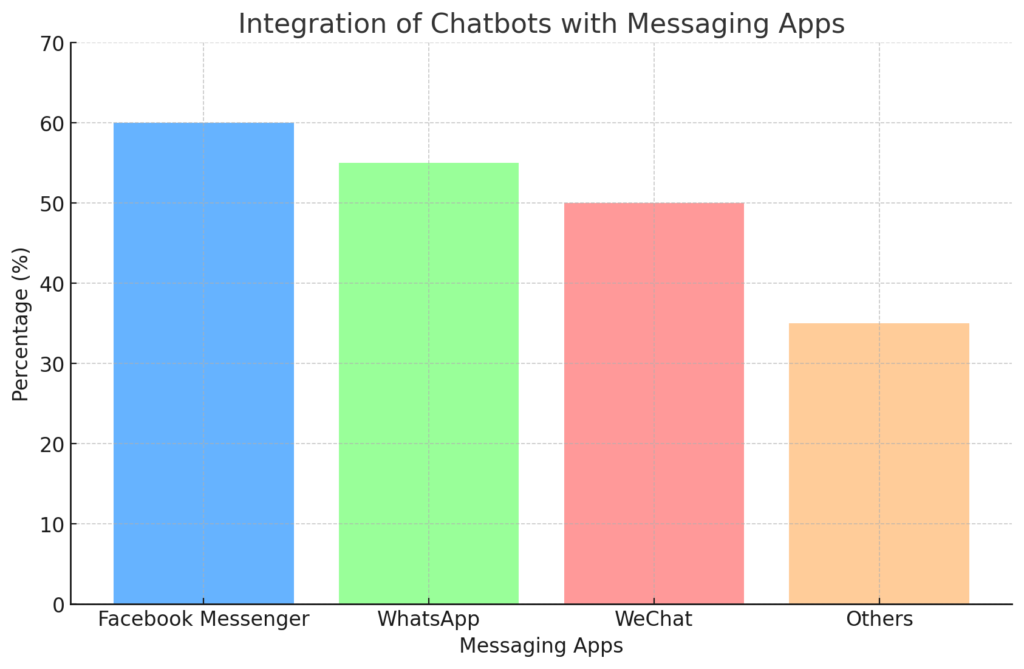
Chatbots are increasingly being integrated into popular messaging apps like Facebook Messenger, WhatsApp, and WeChat. This integration allows businesses to reach customers on platforms they already use, enhancing accessibility and convenience.
8. Chatbots are Effective Tools for Lead Generation and Qualification
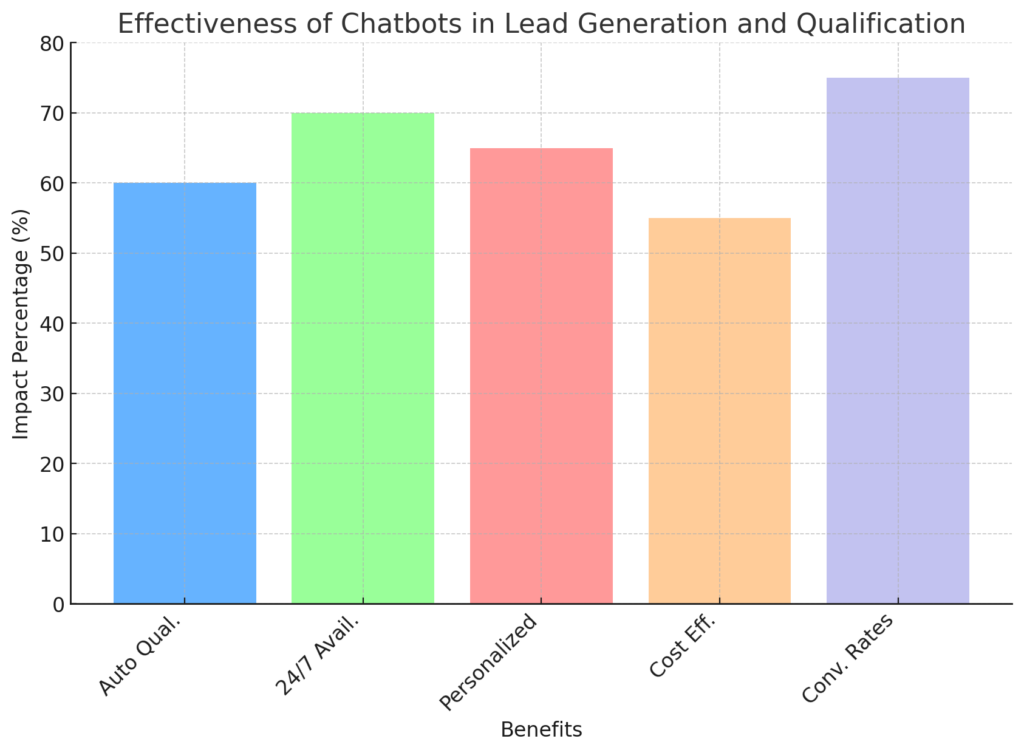
Chatbots are effective tools for lead generation and qualification. They can engage potential customers in real-time, ask qualifying questions, and direct high-quality leads to sales teams, streamlining the sales process.
9. Advancements in AI and Machine Learning are Improving Chatbot Capabilities
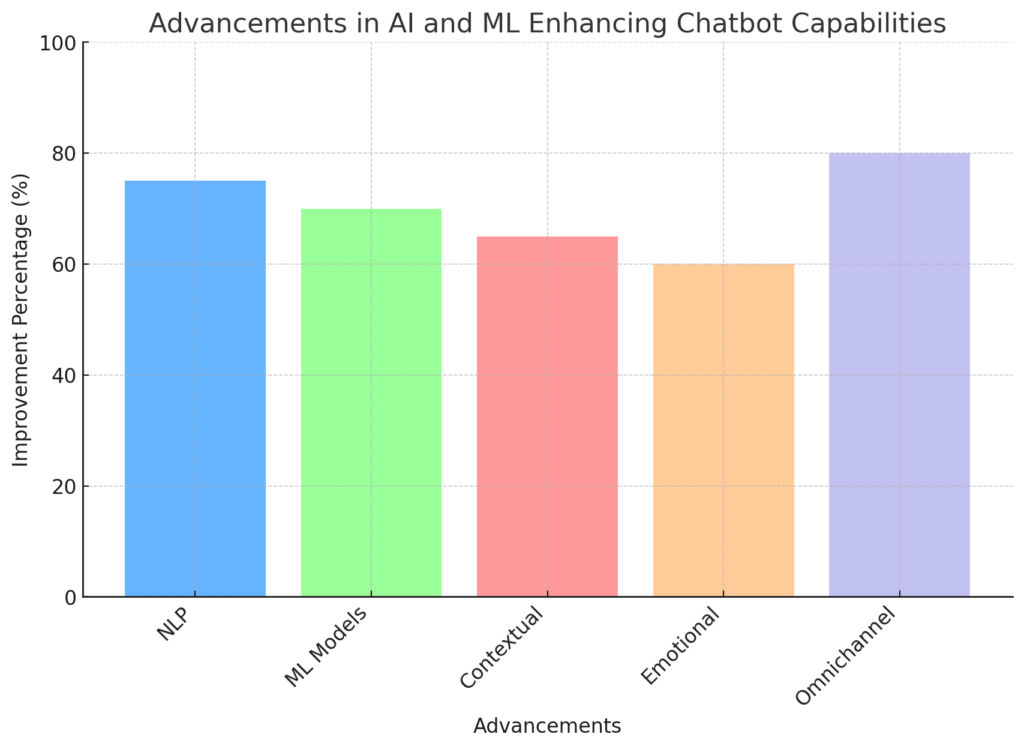
Advancements in AI and machine learning are continually improving chatbot capabilities. These technologies enable chatbots to understand and respond to a wider range of queries, making them more effective in handling complex interactions.
10. Chatbots are Being Used in Healthcare to Provide Medical Information and Support
The healthcare industry is leveraging chatbots to provide patients with medical information, schedule appointments, and offer support for mental health issues. Chatbots can handle a large volume of inquiries, reducing the burden on healthcare professionals.
11. Chatbots Offering Multilingual Support Enhance Global Customer Service
Chatbots are increasingly offering multilingual support, allowing businesses to serve a global customer base. This capability ensures that language barriers do not hinder customer service, leading to better user experiences.
12. Chatbots Streamline Human Resources Processes
Chatbots are being used in human resources to streamline processes such as recruitment, onboarding, and employee inquiries. They can automate routine tasks, freeing up HR professionals to focus on strategic initiatives.
13. Businesses Using Chatbots Report Improved Customer Retention Rates
Businesses using chatbots report improved customer retention rates. By providing timely and efficient support, chatbots can enhance customer loyalty and reduce churn rates.
14. Voice-Activated Chatbots are Gaining Popularity
Voice-activated chatbots, such as Amazon’s Alexa and Google Assistant, are gaining popularity. These assistants use voice recognition technology to perform tasks and answer questions, offering a hands-free user experience.
15. Chatbots Collect Valuable Data on Customer Interactions
Chatbots can collect valuable data on customer interactions, preferences, and behaviors. This data can be analyzed to gain insights into customer needs and improve business strategies.
16. Chatbots are Used in Financial Services for Account Management and Fraud Detection
The financial services industry uses chatbots for tasks such as account management, transaction inquiries, and fraud detection. Chatbots can handle a large volume of requests quickly and accurately, enhancing customer satisfaction.
17. Chatbots Provide Tutoring and Administrative Support in Education
In education, chatbots are being used to provide tutoring, answer student inquiries, and assist with administrative tasks. They can offer personalized learning experiences and support educational institutions in managing student interactions.
18. Governments Deploy Chatbots to Provide Information and Streamline Processes
Governments and public service organizations are deploying chatbots to provide information on services, handle inquiries, and streamline processes such as filing taxes or renewing licenses. This adoption improves efficiency and accessibility for citizens.
19. Chatbots Significantly Reduce Response Times for Customer Inquiries
Chatbots significantly reduce response times for customer inquiries. By providing instant answers to common questions, chatbots can improve the overall customer experience and reduce wait times.
20. Chatbots Enhance Marketing Efforts and Increase Efficiency
Chatbots can enhance marketing efforts by engaging with customers through personalized messages, offering promotions, and collecting feedback. They can also automate tasks such as sending follow-up emails, increasing marketing efficiency.
21. Chatbots are Integrated with CRM Systems to Provide a Seamless Customer Experience
Chatbots are often integrated with customer relationship management (CRM) systems to provide a seamless customer experience. This integration allows chatbots to access customer data and provide personalized interactions based on past behavior and preferences.
22. Small Businesses Benefit from Chatbots by Offering 24/7 Customer Support
Small businesses benefit from chatbots by offering 24/7 customer support without the need for a large customer service team. This capability helps small businesses compete with larger companies by providing efficient and consistent customer service.
23. Chatbots Handle High Volume of Inquiries During Peak Times
During peak times, such as sales events or product launches, chatbots can handle a high volume of inquiries simultaneously. This capability ensures that all customer questions are addressed promptly, preventing delays and improving satisfaction.
24. Chatbots are Used for Employee Training and Development
Chatbots are used for employee training and development by providing interactive learning modules, answering questions, and tracking progress. This approach offers a flexible and scalable solution for ongoing employee education.
25. Future Trends in Chatbots Include Emotional Intelligence and Advanced Conversational Capabilities
The future of chatbots looks promising, with trends such as emotional intelligence, advanced conversational capabilities, and seamless integration with IoT devices. These innovations will continue to enhance the functionality and adoption of chatbots across various industries.







